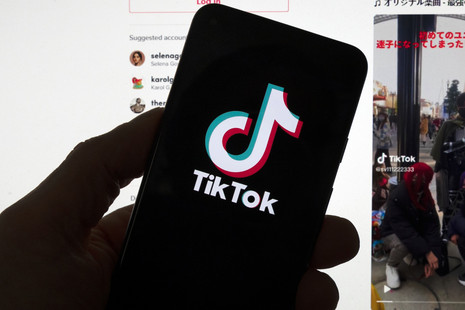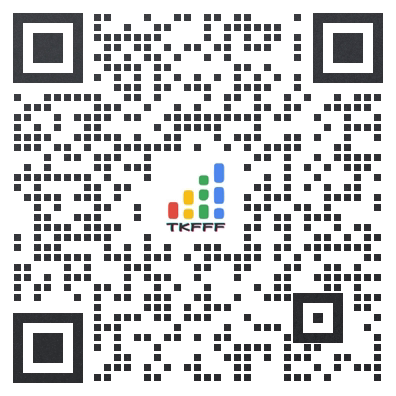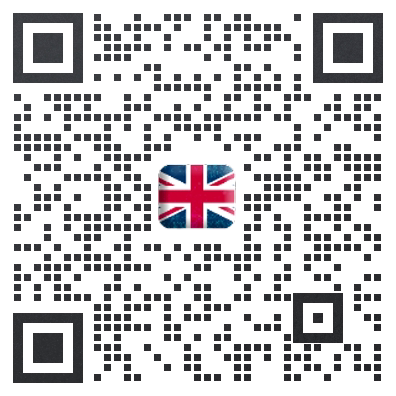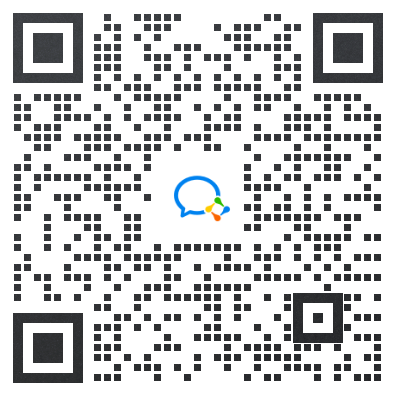
The TikTok logo displayed on a phone. | Michael Dwyer/AP
Aidan Kohn-Murphy is using TikTok to build a Gen Z political army.
Over nearly four years, Kohn-Murphy — founder of the progressive advocacy nonprofit Gen Z for Change — has accrued 1.8 million followers on the group’s TikTok account, which posts videos on hot button political issues, from calling for a cease-fire in Gaza to keeping abortion access in Florida.
The nonprofit’s leaders create the majority of the political content and encourage their coalition of 500 creators to share the videos to their nearly half a billion followers. The goal is to get fans of the social-media app on board with a progressive policy agenda for 2024, seeking policy reforms to address climate change, immigration and education.
For activists looking to connect with a younger liberal demographic, TikTok is becoming the 21st century equivalent of a direct mailing list — a way to reach certain voters right where they live, and urge them to the polls.
Just one problem: TikTok is now in the political crosshairs, and the Democrat at the top of the national ticket — President Joe Biden — has said he’d sign a bill that would effectively ban it.
Though Biden himself has joined TikTok, this doesn’t exactly endear him to the young progressives on the app.
In an indication of how much has changed, Kohn-Murphy’s group was initially called TikTok for Biden. He launched it in September 2020 to draw young voters to support Joe Biden against then-president Donald Trump. It originated when he gathered 40 creators in Zoom to plan a phone bank for Biden. It grew as more joined in — people who had TikTok followings in the millions.
“So it really just started naturally snowballing to where pretty quickly we had accumulated hundreds of creators who wanted to use their platforms to get involved,” he said.
Biden won in November 2020, and the group rebranded itself as Gen Z for Change.
In 2024, the group is endorsing down ballot Democratic candidates this fall, many of whom are Gen Z and millennials themselves. It also supports older candidates who embody their values — the group endorsed veteran California lawmaker Rep. Barbara Lee in her campaign for Senate and pushed her cause in a playful video with the candidate and at a campaign event.
As for Biden himself? That’s more complicated.
Gen Z for Change — a group originally named for Biden — hasn’t yet endorsed his re-election. Kohn-Muphy says the group has soured on his performance in office because he said Biden has backtracked or acted in direct violation to a number of his campaign promises.
It’s not because of Biden’s TikTok stance per se: Kohn-Murphy, like many young voters on the left, is particularly critical of Biden’s expansion of fossil fuel drilling projects and his handling of the Israel-Hamas war and failure to call for a permanent cease-fire in Gaza.
“I think it highlights this tension within the Democratic Party right now where they are recognizing the political power that young people have, but not necessarily treating them as a constituency,” said Kohn-Murphy.
TikTok itself is another issue splitting the party’s top figure from its progressive young grassroots.
The group’s leaders are particularly miffed at the Biden administration for backing a House-passed bill that would force the sale of TikTok by its Chinese owner or face a ban in the U.S.
Claire Simon, 18, who chairs Gen Z for Change’s election project known as 2024ward, thinks a ban could backfire among younger voters, a demographic Biden is already struggling to reach. “I do not think it would not help give him any support, and I would hypothesize that he would lose a lot of support,” she said.
Kohn-Murphy said young people are already feeling Biden doesn’t care about some of their top issues, and to ban the app would be a “total unforced error.”
“Taking away one of the main platforms that young people are using on a daily basis to get their news and get their entertainment is just like, are you kidding?”
When it comes to the national security concerns with TikTok, Kohn-Murphy said doesn’t trust his data with TikTok, Meta or any tech company. But he thinks Congress should instead pass a privacy law — not a bill singling out one company.
“Obviously there is a data privacy crisis in this country. But that goes far beyond Tiktok,” he said.
Simon said, “If members of Congress were truly serious about protecting our data and national security, they’d support broad sweeping regulations across Big Tech.”
To hear Kohn-Muprhy and Simon talk about TikTok is to realize the gap between the Washington conversation — which focuses on security, competition etc. — and the day-to-day experience of the users.
To them, the app’s incredibly sophisticated algorithm isn’t manipulative — it’s actually a selling point. Simon said it enables anyone, even people without as many followers, to go viral. “The reach of TikTok is unmatched,” she said.
Kohn-Murphy said, “You can make an account, post something and wake up and it could have 2 million views. That type of immediate virality — you couldn’t really do that on Instagram.”
Simon also called it the “most authentic” social media app, which is particularly attractive to Gen Z users. “You can really build trust between the audience and creators,” she said.
“You might read an article about a union strike, but on TikTok you’re going to hear a Starbucks worker telling you their experience about it.” Whereas with Instagram, you see a “very curated version” of people’s lives.
How much energy does cryptocurrency mining actually use?
In a report published yesterday, E&E News’ Jason Plautz investigates and finds that… no one really knows. While the U.S. Energy Information Administration estimates that crypto mining accounts for somewhere between 0.6 percent and 2.3 percent of the nation’s total power usage, a lawsuit from the industry is blocking them from investigating further. (A report from the University of Cambridge’s Centre for Alternative Finance estimates crypto mining consumes more than 19,000 megawatts per week at the moment.)
“There’s just not a lot of transparency,” power consultant Ben Hertz-Shargel told Jason. “You can look at the companies that are publicly traded, and they’ll discuss plans with estimates of megawatts [consumed]. But actual demand may be very different, so you only have partial clues.”
Despite the lawsuit blocking the measurement of crypto mining originating in Texas, that state might hold the key to measuring crypto’s true power thirst, as the state’s powerful Electric Reliability Council of Texas collects what one blockchain advocate called “nuanced and minute by minute energy consumption data for Bitcoin miners in Texas.”
Researchers found that AI chatbots are spreading false information about the upcoming European Union elections.
POLITICO’s Clothilde Goujard reported today for Pro subscribers on the analysis from Democracy Reporting International, a Berlin-based NGO. Testing chatbots in March ahead of the upcoming June elections, they found the programs gave incorrect election dates and voting information, as well as broken and irrelevant links.
If you have used a chatbot before, this probably does not come as a surprise: Democracy Reporting International’s co-founder and executive director Michael Meyer-Resende noted that “chatbots are known to invent facts when providing answers,” a phenomenon otherwise known as “hallucination.”
This is mildly annoying when you’re asking for a book summary or biographical information, but could have dire effects when it comes to voting. That’s why developers say their chatbots should be avoided for those purposes: A Google spokesperson told Clothilde, “Because of the known limitations of all LLMs, we believe a responsible approach for [Google’s chatbot] Gemini is to restrict most election-related queries and to direct users to Google Search for the latest and most accurate information.”
文章来源:Politico
TKFFF公众号
扫码关注领【TK运营地图】

TKFFF合作,请扫码联系!







 闽公网安备35021102002035号
闽公网安备35021102002035号